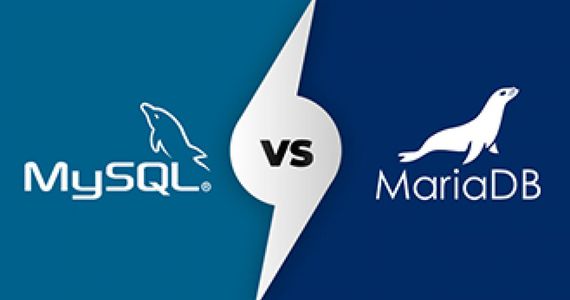
This issue is one of the most curious topics of software developers and system engineers.
To explain, we can define this issue with the question of whether the chicken came from the egg or the egg came from the chicken.
Our uncle David Axmark released the first mysql version on May 23, 1995. In 2008, it was sold to Sun Microsystems.
He then released the name of his second daughter, Mariadb. By the way, the moment of your first daughter is MY :)
Sun is opensource and it was said to continue to be developed for free, but he started to say by the software developers what we would do if one day paid :)
In 2019, all hosting control panels completely started using mariadb by default in their initial setup, but advanced database engineers did not leave mysqli because it had some shortcomings. With the mariadb versions released in 2020, this gap was quickly closed.
Of course, there have been changes since 2008, but the kernels of both are the same, you can see the difference between them in detail in the table below.
Here are important features of Maria DB.
Here are an important features of MySQL.
Here, are cons/ drawback of using MySQL:
Licensing: MariaDB is licensed under the GPL (General Public License), unlike the original version of MySQL. MySQL, on the other hand, was originally dual-licensed, meaning there are GPL and commercial license options. Therefore, licensing requirements can be an important factor based on the needs of your project.
Compatibility: MariaDB and MySQL basically use the same SQL language and are largely compatible. MariaDB provides high compatibility with older versions of MySQL. However, MariaDB does not support some MySQL plugins and storage engines. In this case, if you need to migrate an existing application to MariaDB, you may need to make some compatibility tweaks.
Community Support: Both MariaDB and MySQL are supported by a large and active community. Both offer user-friendly forums, documentation, and resources. However, since MySQL was acquired by Oracle, some users and developers may prefer MariaDB as a more standalone option.
Which database management system to choose depends on your needs and the requirements of your project. Generally, if you have an existing project and are using MySQL, it might make sense to switch to MariaDB because it provides compatibility. You can also opt for MariaDB, which offers performance improvements or certain features. However, if you're starting a completely new project, you may have to choose between MariaDB or MySQL, and it's important to consider the one that best suits your needs.